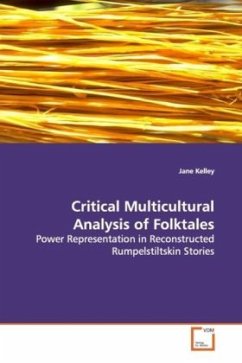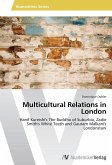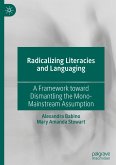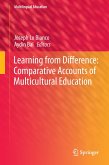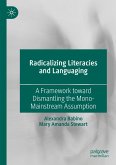If folktales and fairy tales are supposed to convey
fundamental universal truths, or validate the past,
then why do storytellers change the stories? When
stories share similar folktale characteristics (also
referred to as motifs), do they also share the same
messages? Today there are many versions of
traditional tales as well as revised and reworked
tales that provide different points of view. One
particular tale that has a number of counter
perspectives is Rumpelstiltskin. The Grimm Brothers
first recorded Rumpelstiltskin nearly two centuries
ago. This intriguing tale has a seemingly anti-social
message. The only character who tells the truth is
the villain, yet he is the only one who is punished.
This book analyzes Rumpelstiltskin for its
nonconformity to predictable patterns and its
implications for society. Applying a critical
multicultural analysis of these adaptations brings
power relations to the surface, and highlights how
power can be exercised. By identifying the implicit
power in children s literature and folktales such as
Rumpelstiltskin, readers can consider how texts
maintain, counteract, and promote alternative
systemic power structures.
fundamental universal truths, or validate the past,
then why do storytellers change the stories? When
stories share similar folktale characteristics (also
referred to as motifs), do they also share the same
messages? Today there are many versions of
traditional tales as well as revised and reworked
tales that provide different points of view. One
particular tale that has a number of counter
perspectives is Rumpelstiltskin. The Grimm Brothers
first recorded Rumpelstiltskin nearly two centuries
ago. This intriguing tale has a seemingly anti-social
message. The only character who tells the truth is
the villain, yet he is the only one who is punished.
This book analyzes Rumpelstiltskin for its
nonconformity to predictable patterns and its
implications for society. Applying a critical
multicultural analysis of these adaptations brings
power relations to the surface, and highlights how
power can be exercised. By identifying the implicit
power in children s literature and folktales such as
Rumpelstiltskin, readers can consider how texts
maintain, counteract, and promote alternative
systemic power structures.

